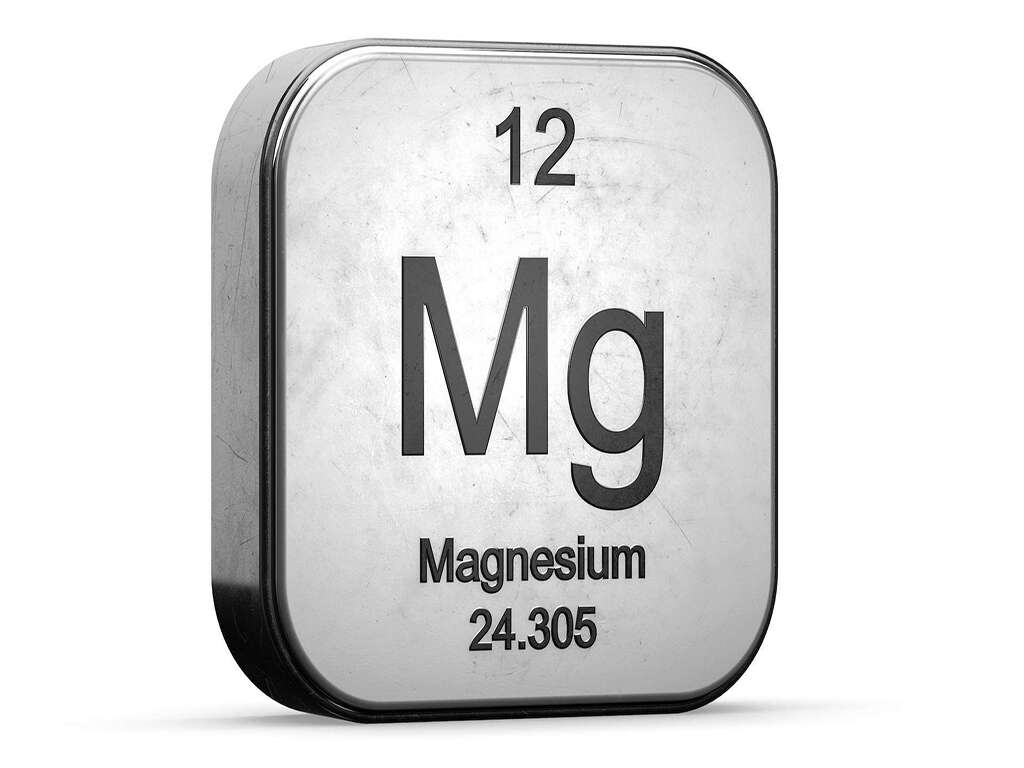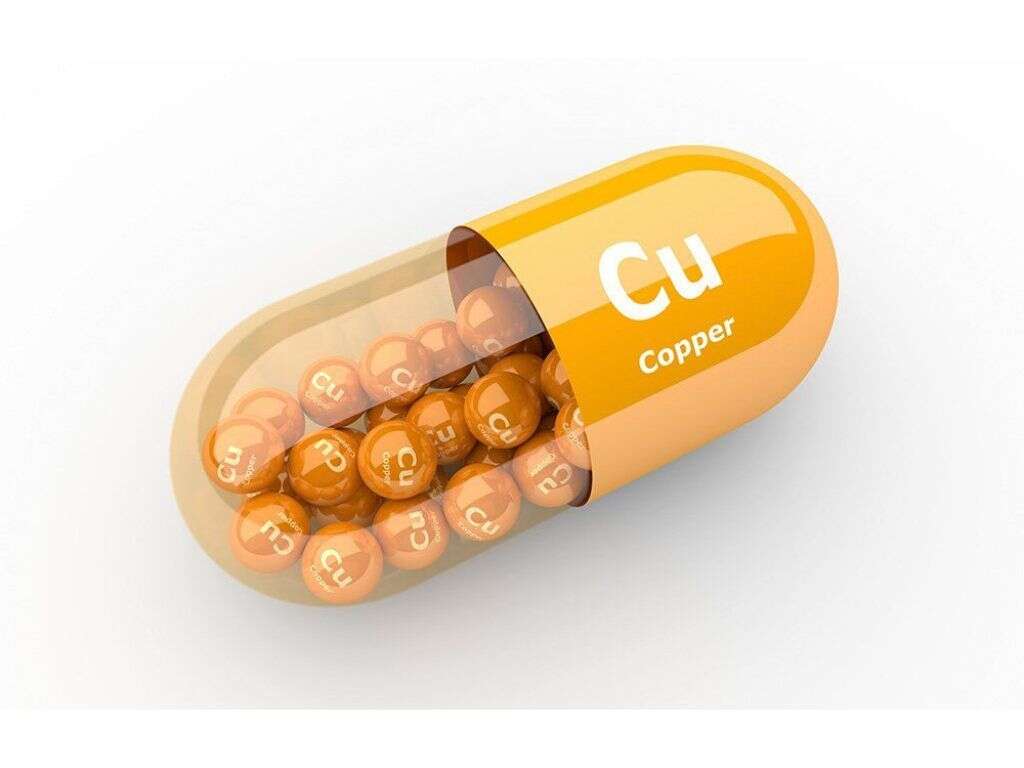10 Magnesium Deficiency Symptoms
Magnesium is a mineral used in more than 300 biochemical functions in the human body. It is involved in the functioning of nerves and muscles, heartbeat, energy production, regulation of blood pressure, regulation of blood glucose levels, and support of the immune system. The average adult human body contains about 25 grams of magnesium: 50 to 60 percent is found in bones, 1 percent is found in blood serum, and the rest is found in soft tissues.
The normal serum level of magnesium ranges between 0.75 to 0.95 millimoles per liter, or mmol/L. To maintain this level, humans need a daily intake of between 30mg for a newborn to 420mg for adults aged 51 years or older. Low magnesium occurs when serum level falls below 0.75mmol/L. Because of its involvement in many body functions, low levels can disrupt these functions and lead to 1https://ods.od.nih.gov/factsheets/Magnesium-HealthProfessional/.

Symptom #1: Chronic Fatigue
Fatigue is one of the most common symptoms of low magnesium. Low levels affect the production of energy and the workings of muscles and nerves. When the body does not produce optimum levels of energy, some processes will be adversely affected. Additionally, because magnesium is required for the proper use of potassium in muscles, reduced magnesium levels can mean that the muscles do not function normally.
Inadequate magnesium in the body can therefore lead to fatigue. However, this does not mean that you have magnesium deficiency every time you experience fatigue. Rather, you are more likely to have low magnesium if you have chronic fatigue.

Symptom #2: Muscle Cramps
If you are experiencing muscular cramping or twitching, your body may be low in magnesium. In some cases, magnesium deficiency can lead to seizures and convulsions. Magnesium is required for the proper functioning of muscles and nerves by maintaining ion balance, which plays a part in muscle function.
Magnesium deficiency can affect nerve impulses to and from the muscles. It can also affect the way muscle fibers function. It is worth noting that muscle cramps, twitching or seizures may result from many other causes. For this reason, you should consult a doctor for diagnosis in case your symptoms persist.

Symptom #3: Numbness
Besides twitching and cramping, numbness is another possible symptom of low magnesium. Numbness occurs when electrical impulses travelling through nerves do not get to their intended destination or they don’t deliver the intended signal. As a result, the signals don’t produce the desired reaction. This leads to nervous dysfunction which can cause numbness or tingling in the face, hands or feet.
It is worth noting that numbness may be caused by a few other factors and it is also normal to get occasional numbness or tingling. However, if this becomes a recurrent experience, seek a doctor’s advice.

Symptom #4: Nausea
Nausea is among the first symptoms of magnesium deficiency. Nausea may occur alone or be accompanied by vomiting. While nausea and vomiting are not serious symptoms, they can become a nuisance if they reoccur often. They can also disrupt your normal activities because you may constantly feel sick.
Nausea and vomiting can be caused by many other factors. In some cases, nausea and vomiting may occur due to excessive magnesium levels. Similar symptoms may be caused by some medications. And while occasional nausea or vomiting is a normal occurrence, you should consult a doctor for diagnosis and treatment if there are repeated occurrences.

Symptom #5: Irregular Heartbeat
Irregular heartbeat, or heart arrhythmia, is a serious symptom of low magnesium in the body. The heart is composed of muscle tissue whose proper functioning requires adequate levels of magnesium and potassium.
Low magnesium leads to low potassium levels, which affects normal heart rhythm. While in most cases, arrhythmia is a mild condition, if it goes on without treatment it may lead to heart failure or stroke. Heart arrhythmia can present in several ways, including missed heartbeats or heart palpitations, chest pain, light-headedness, and fainting. Magnesium injections are sometimes used to treat arrhythmia 2https://www.ncbi.nlm.nih.gov/pubmed/10672134.

Symptom #6: High Blood Pressure
Because magnesium is involved in the regulation of potassium in the body, deficiency can lead to low potassium levels. Potassium and sodium balance are critical to the maintenance of healthy blood pressure. If potassium levels go down as a result of low magnesium, the rise of sodium levels causes a rise in blood pressure.
While there are no conclusive human studies, studies carried out on animals have found that low magnesium levels can lead to an increase in blood pressure. It is worth noting that chronically high blood pressure can lead to an increased risk of heart disease and stroke 3https://www.ncbi.nlm.nih.gov/pubmed/26724178.

Symptom #7: Migraines
Another symptom of magnesium deficiency is migraine headaches. Magnesium is involved in neurotransmitter releases as well as vasodilation. Low levels can affect releases of some neurotransmitters as well as cause constriction of blood vessels, leading to headaches.
While migraines are not directly caused by magnesium deficiency, studies indicate that magnesium supplements can reduce their frequency. According to the American Headache Society and the American Academy of Neurology, magnesium may help prevent migraines. Some trials conducted on migraine patients found that taking 300mg of magnesium twice daily led to a reduction in the frequency of migraine attacks.

Symptom #8: Osteoporosis
Osteoporosis is a condition which causes bone weakness. This leads to an increased risk for bone fractures. While old age and deficiencies in vitamins D and K are contributing factors towards bone weakness, low levels of magnesium increase the risk of developing the condition. According to findings from a collection of studies, magnesium deficiency can lead to weak bones because of reduced bone density.
It is noteworthy that magnesium deficiency leads to lower blood calcium levels. And considering that calcium is the main component in bones, reduced calcium levels leads to weak bones and osteoporosis. Taking magnesium supplements and eating foods rich in magnesium can help reduce deficiencies and lead to increased bone density.

Symptom #9: Serious Asthma
Various studies have found that many people with serious asthma are low in magnesium. This suggests that there is a link between magnesium deficiency and asthma. This is reasonable considering that the lining of the airways has muscles which alternately contract and expand when you breathe.
In fact, some scientists believe that serious asthma may be a symptom of depleted magnesium levels. Low magnesium may lead to pulmonary complications and airway muscle constriction. This can interfere with the elasticity of the airways and impede smooth airflow. Incidentally, inhalers containing magnesium sulfate are sometimes used to relieve serious asthmatic attacks by relaxing the airways.

Symptom #10: Mental Disorders
Some mental disorders such as apathy and delirium can be symptoms of low magnesium. Magnesium deficiency can even lead to depression, anxiety and coma. Considering that magnesium is involved in nerve functions, its deficiency can interfere with the proper functioning of the nervous system including parts of the brain. This can lead to some mental dysfunction and cause the above symptoms. It is therefore possible that mental disorders that occur with no known cause may be the result of low magnesium levels.
While no evidence-based studies are available, eating more magnesium-rich foods or taking magnesium supplements can help to recover from some of these mental disorders; however, it is also worth to note that there are many causes of mental disorders so seek medical advice and treatment.









